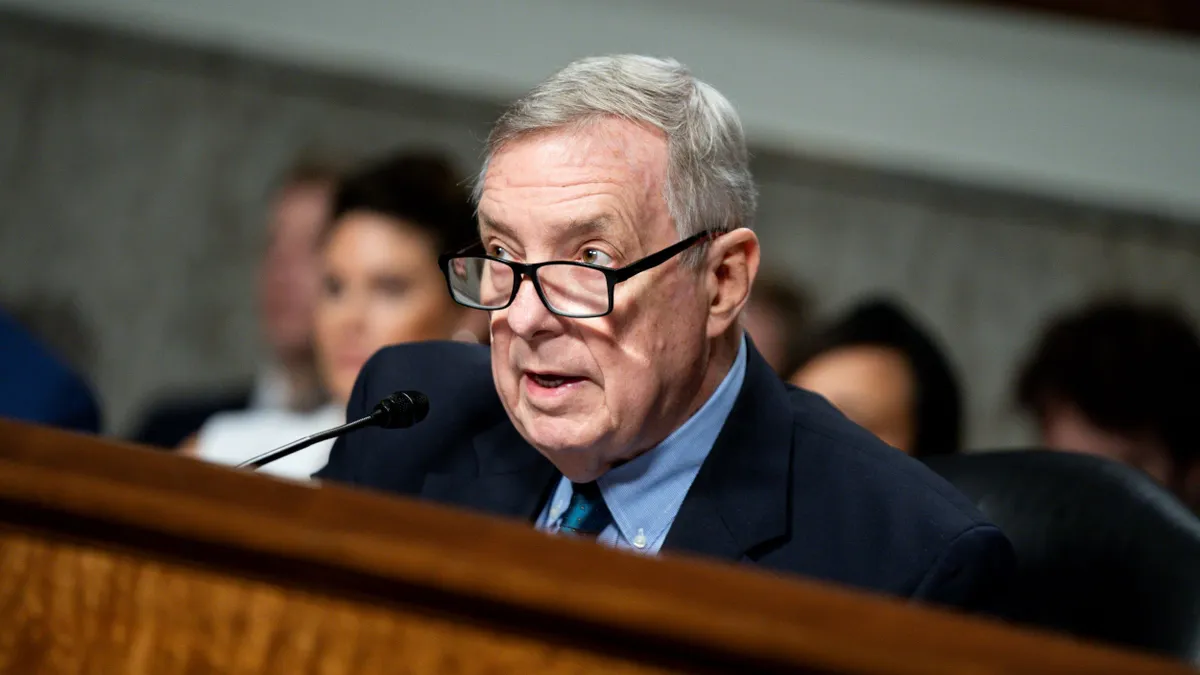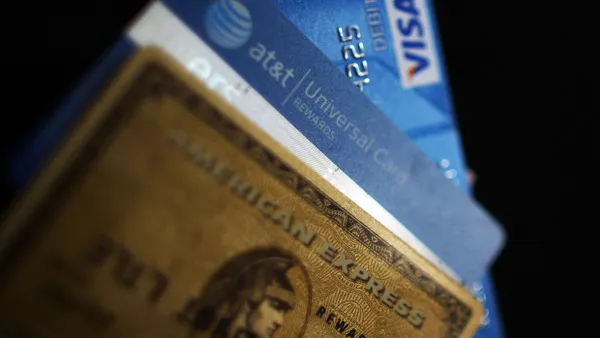Sen. Dick Durbin has jumped into the fight over an Illinois law that seeks to ban card interchange fees on the taxes and tips that consumers pay when buying goods and services.
Durbin, an Illinois Democrat who has battled the card networks for decades, expressed support for the law, the Illinois Interchange Fee Prohibition Act, on Friday in the legal battle playing out in federal court. The state law, enacted in June, is scheduled to take effect next July.
As the author of the Durbin Amendment, passed as part of the 2010 Dodd-Frank Wall Street Reform and Consumer Protection Act, the senator took issue with the plaintiffs arguing in their lawsuit that the state law is at odds with his namesake federal law.
“Both the Durbin Amendment and the IFPA take important steps to rein in debit interchange fee collusion that card networks like Visa and Mastercard facilitate on behalf of their card-issuing financial institutions,” Durbin’s lawyers said in a court filing. “The two laws do so in ways that are consistent with, and complementary of, one another.”
The case, brought by a group of financial institution trade groups in U.S. District Court for Northern Illinois, seeks to overturn the state law. The plaintiffs include the Illinois Bankers Association, America’s Credit Unions and the American Bankers Association, all of which represent financial institutions that issue credit and debit cards.
The Illinois Attorney General Kwame Raoul on Friday also asked the court to dismiss the case, saying the plaintiffs lacked jurisdiction and a valid claim.
In bringing the lawsuit on Aug. 15, the plaintiffs argued that the state law is preempted by federal laws that extend certain authority to national banks and credit unions. They also say it is preempted by the Durbin Amendment, which tasked the Federal Reserve with setting limits for interchange fees, not states.
In addition, they contended that if the law is implemented, it “would upend the intricate and carefully calibrated global systems for debit and credit card purchases.”
Not so, say Durbin’s lawyers. Banks could simply reimburse merchants for certain amounts, following similar practices they’ve had in place for years, his lawyers from the Chicago law firm Sperling and Slater wrote.
“While the Plaintiffs claim it would be too complex and administratively burdensome for them to pay merchants back for such interchange fees, the reality is the Plaintiffs’ member institutions have long utilized post-transaction chargebacks to require merchants to pay the financial institutions back,” Durbin’s filing said.
However, the Office of the Comptroller of the Currency had a different view when it entered the legal brawl last week, echoing the bank groups’ concerns and saying the law would be disruptive to the nationwide banking system. The federal agency called it “an ill-conceived, highly unusual, and largely unworkable state law that threatens to fragment and disrupt this efficient and effective system.”
On another front, Durbin is also pushing legislation in Congress aimed at reining in interchange fees and injecting more competition into the card network industry dominated by Visa and Mastercard. He and Sen. Roger Marshall, a Republican from Kansas, are urging passage of the Credit Card Competition Act, which would require that bank card issuers ensure that merchants have an alternative to Visa and Mastercard for processing payments.
Other trade groups have added their voices to the skirmish with briefs filed in the court. For instance the Electronic Transactions Association and the Electronic Payments Coalition, which represent banks, digital payments companies and card networks, have supported the lawsuit. Meanwhile, the Illinois Restaurant Association and the Illinois Retail Merchants Association oppose it.











